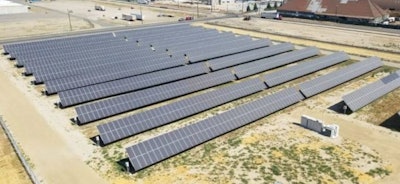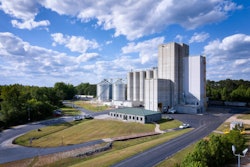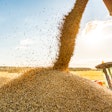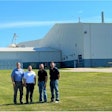
Miller Milling Co. announces plans to expand its solar power capabilities at its flour mill in Fresno, California.
Company officials said the expansion will add 1.01 megawatts of DC electricity that will be transformed and used at the mill. This amount plus the existing 1.01 megawatts of electricity being produced through solar will satisfy roughly 33% of the total electrical demand of the facility, the company said.
Miller Milling Co.’s solar power system became operational in 2017 and involved the installation of 2,340 solar panels required for the project on five acres located adjacent to the mill.
In 2021, Miller Milling enrolled the facility in the US EPA Energy Star Challenge for Industry, which challenges industrial sites to reduce their energy intensity by 10% within a five-year period from enrolling. The company said it anticipates the Fresno site will accomplish this goal by 2024 when the additional solar production is fully operational.
“This accomplishment will make the Fresno facility the only U.S.-based flour mill to achieve the USEPA Challenge,” the company said. “We are proud that we will be joining many of our baking customers who have already achieved the challenge.
“The use of renewable energy is supportive of a primary sustainability goal of Miller Milling which is to reduce our overall CO2 emissions. Our targets of 50% reduction of CO2 emissions (from 2013 baseline) by 2030 and zero emissions by 2050 are aggressive but achievable via projects like this and further investment into renewable energy options.”
Miller Milling said it also is expanding its sustainable efforts to include support of regenerative agriculture in wheat production.
“We will be leveraging partnerships with our suppliers and customers to support farming practices that sustain soil health and reduce the production of CO2 emissions through agricultural practices,” the company said.

















